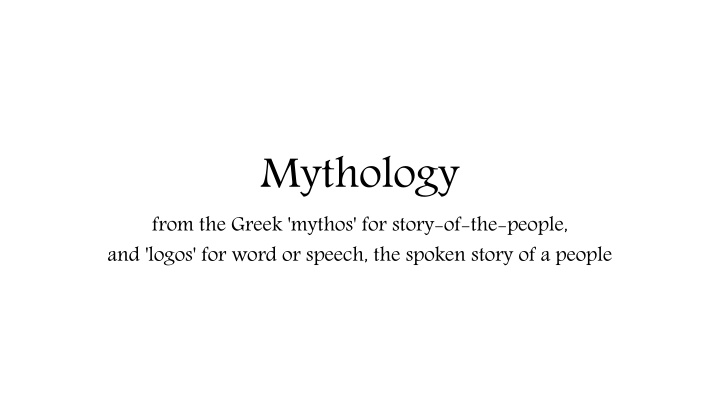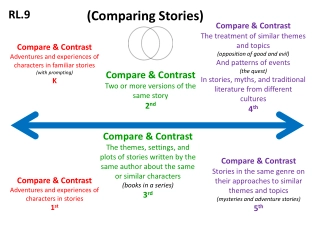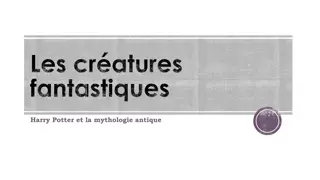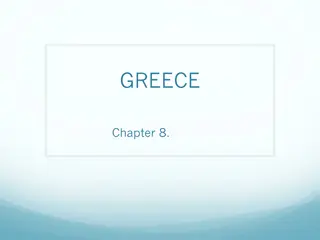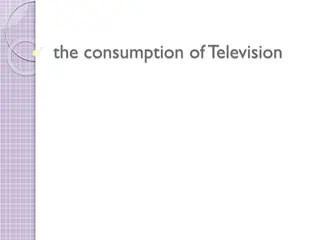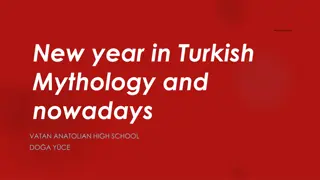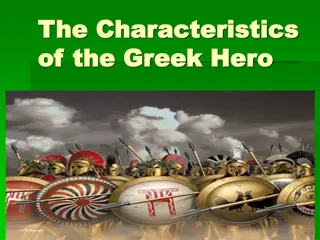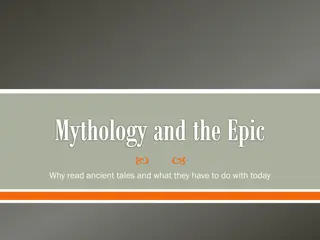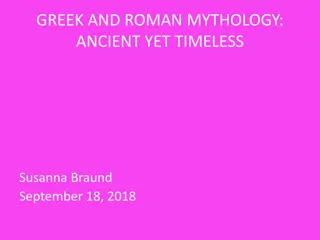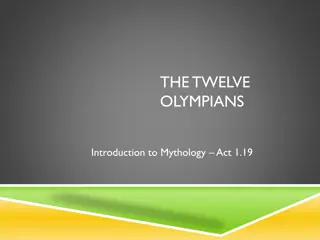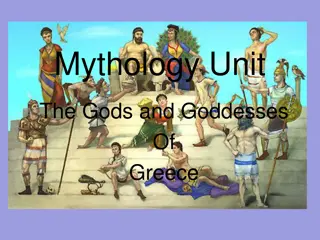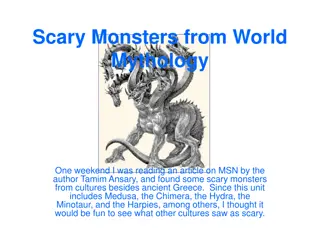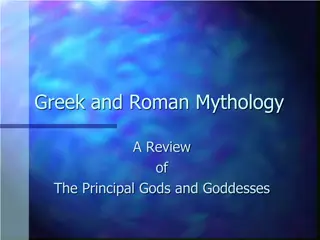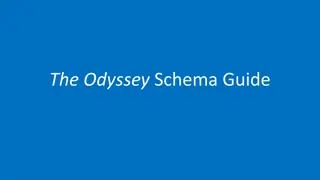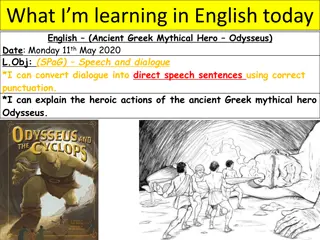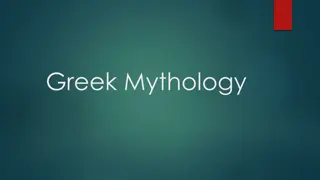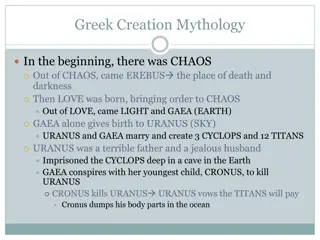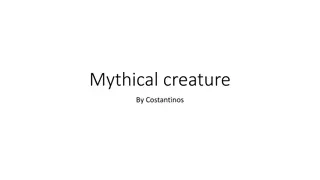Mythology and Common Themes in Ancient Cultures
captivating world of mythology, delving into the sacred tales and common themes of ancient civilizations. Discover stories of creation, titanomachy, great floods, and heroes' journeys across various cultures.
Download Presentation

Please find below an Image/Link to download the presentation.
The content on the website is provided AS IS for your information and personal use only. It may not be sold, licensed, or shared on other websites without obtaining consent from the author.If you encounter any issues during the download, it is possible that the publisher has removed the file from their server.
You are allowed to download the files provided on this website for personal or commercial use, subject to the condition that they are used lawfully. All files are the property of their respective owners.
The content on the website is provided AS IS for your information and personal use only. It may not be sold, licensed, or shared on other websites without obtaining consent from the author.
E N D
Presentation Transcript
Mythology from the Greek 'mythos' for story-of-the-people, and 'logos' for word or speech, the spoken story of a people
Terms: Mythology is the study and interpretation of often sacred tales (myths) of a culture. Every ancient culture has its own mythology. To the ancients, the meaning of the story was most important, not the literal truth of the details. Myths- a collection of stories which express the beliefs and values held by certain cultures. Myths usually deal with the human condition, good and evil, human origins, life and death, the afterlife, gods and goddesses, the elements of nature, and customs. They often describe the actions of deities or supernatural beings. Deities-gods or goddesses.
Common Mythological Themes Creation Stories- How and why the world was created. Titanomachy- a group of younger, more civilized gods conquers and/or struggles against a group of older gods who represent the forces of chaos. In Hindu mythology, the younger devas (gods) battle the older asuras (demons), though both are born from the same father, Kashyap, the grandson of Brahma. In the Greek mythology, the Olympian gods defeat the Titans, an older and more primitive divine race, and establish cosmic order. The Celtic gods of life and light struggle against the Fomorians, ancient gods of death and darkness. The Creative Sacrifice- a god or supernatural being is sacrificed in order to create the world. The Chinese myth of Pangu, the Indian Vedic myth of Purusha, and the Norse myth of Ymir all tell of a cosmic giant who is killed to create the world
Great Flood- Cultures around the world tell stories about a great flood that covered the Earth. Stories of a single flood survivor appear in Hindu mythology and Aztec mythology. Other myths focus on groups of people who helped each other survive. Axis Mundi-Many mythologies mention a place that sits at the center of the world and acts as a point of contact between different levels of the universe.This "axis mundi" is often marked by a sacred tree or other mythical object. Many myths describe a great tree or pillar joining heaven, earth, and the underworld.India, ancient China, and the ancient Germans all had myths featuring a "Cosmic Tree" whose branches reach heaven and whose roots reach hell. Founding Myths- stories about why cultures have certain customs. Heroes- mortals or demigods (half gods) who preform miraculous feats while on a quest.
Simpler Versions of The Heros Journey https://www.youtube.com/watch?v=4V7drZMyL5M
